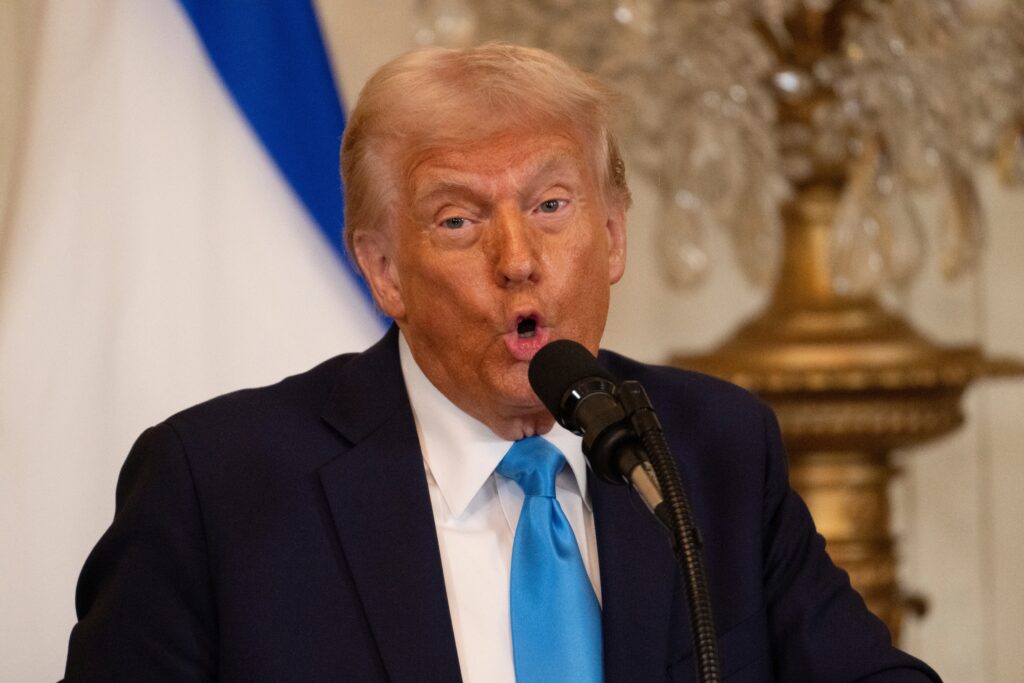President Donald Trump has announced new tariffs on foreign cars and vehicle parts entering the United States, starting April 2. The 25% tariffs are expected to impact both finished cars and car parts, with vehicle parts facing tariffs in May or later. Trump stated that the policy would boost investment and job creation in the U.S. auto industry. However, experts warn the move could disrupt domestic production, increase prices for consumers, and strain international trade relations.
Tariff Details and Economic Impact
The U.S. imported approximately 8 million vehicles in the previous year, worth around $240 billion in total trade value. Nearly half of all cars sold in the U.S. are sourced from foreign markets, particularly Mexico, Japan, and Canada. Mexico is the largest supplier of foreign cars to the U.S., followed closely by South Korea, Japan, and Germany. Many U.S. automakers have factories in Mexico and Canada, thanks to the North American Free Trade Agreement (NAFTA). The new tariffs are expected to impact both finished vehicles and parts that are assembled in the U.S. after import.
Parts Tariffs Pressure U.S. Market
The White House confirmed that tariffs would also apply to parts assembled in the U.S. after import. However, parts imported from Canada and Mexico are temporarily exempt while U.S. customs systems are established. This trade integration between the U.S., Mexico, and Canada is critical, with billions of dollars in goods crossing their borders daily. Following Trump’s announcement, shares in General Motors dropped about 3%, with other automakers like Ford seeing similar declines. Despite these reactions, Trump remained firm, calling the tariffs “permanent” and emphasizing that no tariff would be applied to cars built within the U.S.
International Response and Trade Tensions
Japan, the second-largest car exporter globally, immediately expressed concerns about the new tariffs. Prime Minister Shigeru Ishiba promised to explore “all available options” in response. Stocks of major Japanese car manufacturers, such as Toyota, Nissan, and Honda, fell significantly during early Tokyo trading. Japan has long been a key trade partner for the U.S. in the auto industry.
Tariffs are essentially taxes imposed by governments on imports and have become a key tool for President Trump in his effort to protect American industries. However, experts argue that such measures can also increase production costs for companies reliant on global supply chains, particularly in the automotive sector. Estimates suggest that tariffs on Canadian and Mexican parts alone could lead to a price increase of $4,000 to $10,000 per vehicle.
Trade Partners Push Back: UK’s Concerns and Canada’s Response
The UK, a major exporter of cars to the U.S., expressed concern that British car exports could suffer due to the new tariffs. British automaker Jaguar Land Rover, for instance, sold more than 116,000 vehicles to U.S. customers last year—more than in the UK or China. The UK government is in active discussions with the U.S. administration in hopes of securing exemptions before the tariffs take effect.
Meanwhile, Canadian Prime Minister Mark Carney condemned the tariffs, calling them a “direct attack” on Canada’s auto industry. He assured Canadians that while the tariffs would be damaging, the country would remain resilient. European Commission President Ursula von der Leyen echoed similar concerns, noting that tariffs are harmful to both businesses and consumers.
Trump also warned of even higher tariffs if the EU and Canada retaliate in ways that could harm the U.S. economy. The UK, in particular, remains the second-largest export market for British cars, especially for luxury models.
Industry Reactions: Investments and Division
South Korean automaker Hyundai announced a $21 billion investment in the U.S., including a new steel facility in Louisiana, as part of a broader strategy to strengthen its American manufacturing presence. Trump hailed Hyundai’s investment as proof that tariffs are effective in reshaping trade.
However, not everyone shares this positive outlook. Shawn Fain, the president of the United Autoworkers Union, praised the tariffs, calling them a bold step toward ending the “free trade disaster” that has hurt working-class communities in the U.S. On the other hand, Matt Blunt, president of the American Automotive Policy Council, supported Trump’s push to bring more manufacturing back to the U.S.
According to a 2024 report from the U.S. International Trade Commission, the new tariffs could lead to a 75% drop in car imports, while vehicle prices in the U.S. are expected to rise by about 5%.
President Trump’s decision to impose tariffs on foreign cars and parts is a bold move aimed at reshaping U.S. trade policy and revitalizing the domestic auto industry. However, the policy has sparked significant backlash both domestically and internationally. As the tariffs take effect, it remains to be seen how they will affect global trade, U.S. manufacturers, and consumers alike. The ongoing debate highlights the complex nature of trade policy in a globalized economy.
